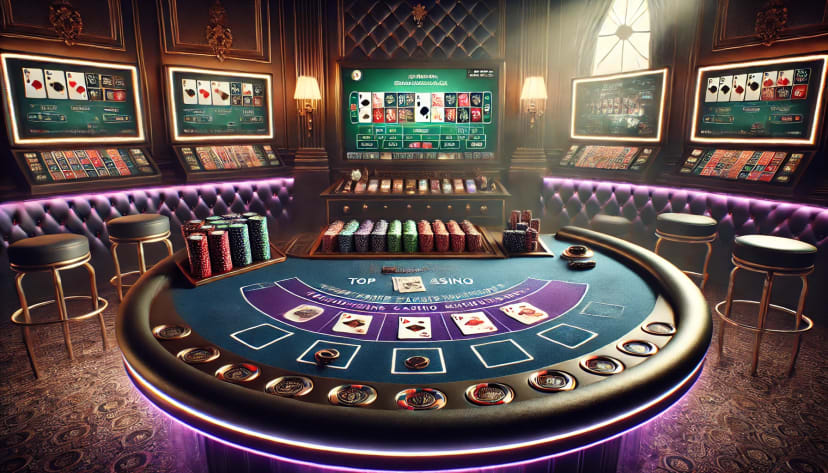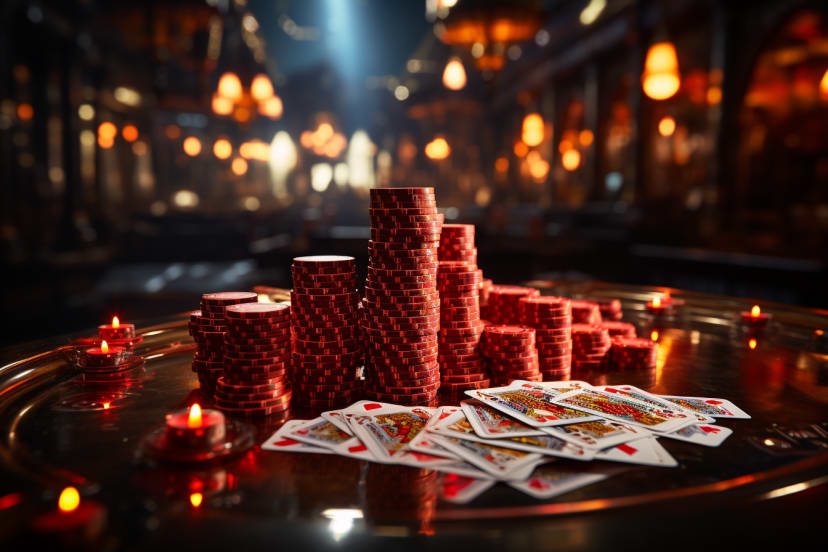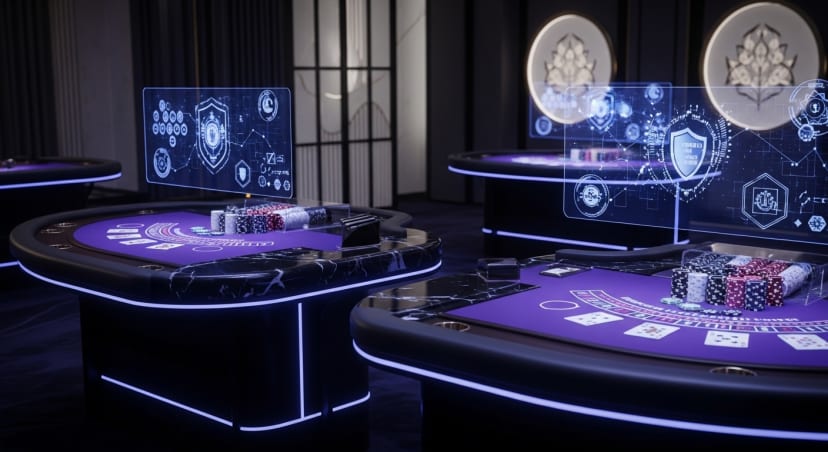Blackjack is a favourite card game in online casinos across South Africa, where the goal is to beat the dealer by achieving a hand total as close to 21 as possible without going over. Knowing which hands to play can seriously tip the scales between winning and losing. This guide delves into the best and worst blackjack hands, offering strategies, percentages, and charts to help you make smart decisions at the virtual felt.
Decoding Your Blackjack Hands
In blackjack, your hand consists of two or more cards, each with a specific point value. Aces can be tricky, being worth either 1 or 11 points. Face cards like Kings, Queens, and Jacks are all worth 10 points, while numbered cards are worth their face value. The ultimate hand? That's a natural blackjack – an Ace paired with any ten-point card for a perfect 21.
The variety of possible blackjack hands hinges on the number of decks used. With a single deck, there are 1,326 unique two-card combinations. However, when casinos use six decks, this number skyrockets to over 4 million possible combinations.
Mastering the Best Blackjack Hands
Your strongest hands in blackjack are those that are likely to hit 21 or get very close, giving you a better shot at outplaying the dealer. Naturally, the best hand is that coveted natural blackjack (Ace and a ten-point card), paying out at a juicy 3:2.
Other powerful hands include pairs of Aces or Eights. These are prime candidates for splitting into two separate hands, significantly boosting your chances of hitting 21 or a high total on each. A 'soft 18' (an Ace and a Seven) is also a solid hand to play, as you can hit for another card without the risk of busting.
Navigating the Worst Blackjack Hands
Conversely, the worst hands are those with a high probability of exceeding 21, leading to a "bust". The dreaded hard 16 (a Ten and a Six) is often considered the worst. If you hit it, you risk busting with most cards, making it a precarious spot to be in.
Other weak blackjack hands include a hard 12 or 13, which should be hit if the dealer's upcard is 7 or higher. A hard 15 or 16 should also be hit if the dealer's upcard is a 7 or higher.
What Percentage of Hands do you win in Blackjack?
The percentage of hands a player can win in blackjack depends on various factors, including the player's skill level, the casino's rules, and the number of decks used. On average, a skilled player can win around 48-49% of hands played.
Blackjack Hand Strategies
The best blackjack strategy to win at online casinos involves following a set of rules that players can use to make strategic decisions during the game. The basic blackjack strategy can help players maximize their chances of winning by advising them when to hit, stand, double down, or split based on their hand and the dealer's up card.
Hard hands
For hard hands, players should hit if their hand value is 8 or less, while they should double down if their hand value is 9-11, depending on the dealer's up card. If their hand value is 12-16, players should hit if the dealer's up card is 7 or higher; otherwise, they should stand. If their hand value is 17 or higher, players should always stand.
Soft hands
For soft hands, players should double down if their hand value is Ace-2 through Ace-7, depending on the dealer's up card. If their hand value is Ace-8 or Ace-9, players should always stand.
Pairs
For pairs, players should always split Aces and 8s, while never splitting 5s and 10s. Other pairs should be split based on the dealer's up card, with certain pairs being split only if the dealer's up card is within a specific range.
Surrender
Finally, players may surrender their hand in certain situations, forfeiting half of their bet but ending the hand. Surrender is advised in certain scenarios, such as when the player's hand value is 15-17 and the dealer's up card is high.
Multiple Hands in Blackjack
Online casinos offer players the opportunity to play multiple hands of blackjack simultaneously, increasing the number of hands played per hour. Players should be cautious when playing multiple hands, as it can increase their chances of losing. It is recommended that players stick to playing one or two hands at a time to maximize their chances of winning.
Conclusion about Blackjack Hands
Knowing the best and worst blackjack hands and when to hit, stand, split, or double down is essential for any player looking to increase their chances of winning. While luck plays a significant role in the game of blackjack, implementing the strategies outlined in this article can help players make more informed decisions at the tables.
Remember that playing blackjack, like any form of gambling, carries a risk, and players should never bet more than they can afford to lose. Online casinos provide players with a safe and convenient way to play blackjack, but it is essential to choose a good online casino with fair rules and regulations. Following the strategies outlined in this article and playing responsibly, players will be able to enjoy the excitement and thrill of blackjack while minimizing their losses.
FAQ
What is a blackjack hand in the South African context?
In blackjack, a hand consists of two or more cards dealt by the dealer. Each card has a point value. The aim is to beat the dealer by having a hand that totals 21, or is closer to 21 than the dealer's, without going over. It's a game of skill and chance enjoyed by many South African players.
What does "soft" mean when playing blackjack in South Africa?
A "soft" hand in blackjack includes an Ace, which can count as 1 or 11 points. For example, an Ace and a 6 can be a soft 17 or a hard 7, depending on what the player chooses. Understanding this is key to making strategic decisions in your game.
Is there a blackjack hand that South African players should never split?
While splitting Aces and Eights is often recommended, a pair of Fives should generally never be split. A pair of Fives gives you a total of 10, a strong starting point. Splitting them risks creating two weaker hands, which isn't ideal in most scenarios.
When is the best time for South African players to split a hand in blackjack?
Splitting a hand involves separating a pair of cards with the same rank. Whether to split depends on the dealer's up card and basic strategy. Splitting Aces is usually a good move, while splitting 5s or 10s is generally not recommended. Always consider the odds and play responsibly.
Here are some examples of when to split pairs based on the dealer's up card, keeping in mind responsible gambling practices:
- Split a pair of 2s or 3s if the dealer's up card is 4 through 7.
- Split a pair of 4s if the dealer's up card is 5 or 6.
- Split a pair of 6s if the dealer's up card is 2 through 6.
- Split a pair of 7s if the dealer's up card is 2 through 7.
- Split a pair of 9s if the dealer's up card is 2 through 6 or 8 or 9.
What is the most commonly misplayed hand in blackjack among South African players?
Experts often point to a soft 18 as the most misplayed hand. Many players stand on a soft 18, but it's often better to hit if the dealer's upcard is 9, 10, or an Ace. Hitting increases your chances of improving your hand. Remember to gamble responsibly and within your limits.
















